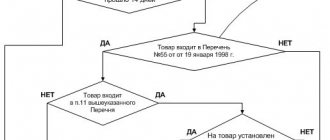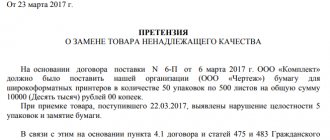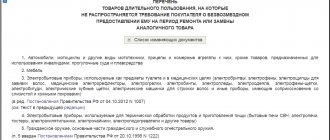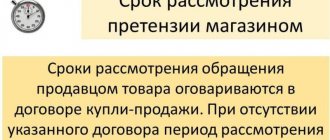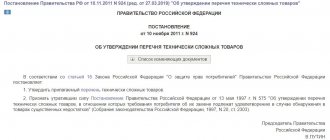The Supreme Court recalled the difference between a significant and fatal defect of a product
The Supreme Court issued Determination No. 9-КГ20-11-К1, in which it reminded lower courts that the irreparability of a defect is not synonymous with the materiality of the defect in a product.
On June 5, 2012, V. Barabanov purchased an AUDI A6 car at a car dealership. On May 13, 2021, service activities were carried out on the car to update the software. On November 26, 2021, after the expiration of the warranty period, a fire occurred in the car, resulting in mechanical damage. Two days later, Barabanov sold the car to Andrei Petrov for RUB 1,475,000.
On the same day, November 28, 2021, the parties entered into an agreement for the assignment of rights of claim, according to which Barabanov, simultaneously with the transfer of the car when signing the contract, assigned to the buyer all rights (claims) belonging to him as a consumer to the manufacturer, importer, seller related to the acquisition and using this vehicle. These included: the right to demand free repairs, the right to refuse to fulfill the contract of sale of the car concluded with the original seller, the right to demand the return of the money paid for the car and payment of the difference between the price paid for the car and its price on the day satisfaction of the consumer's requirements, the right to collect statutory penalties, fines, penalties, interest, damages, legal expenses, moral damages, as well as all other rights (requirements) of the consumer as provided for by the Law on the Protection of Consumer Rights. The rights under the agreement were transferred to Andrey Petrov from the moment the agreement was signed and to the extent and on the conditions that exist at the time of transfer of rights, including the right to submit in court all requirements for the protection of consumer rights provided for by law.
The car was delivered to the official dealer, Avtoliga-Concern LLC, for diagnostics, and from there it was moved to the service station of Center-Service LLC. Diagnostics revealed that the cause of the fire was a manufacturing defect. The cost of eliminating it, according to the estimate, is about 3 million rubles.
Due to the refusal to carry out repairs, Andrei Petrov conducted an independent examination, which confirmed that the cause of the fire was a manufacturing defect. The claim sent to the importer, Volkswagen Group Rus LLC, was left unanswered and unsatisfied, and therefore the Consumer Protection Center, acting in the interests of Andrei Petrov, filed a claim against the company in the Bogorodsky City Court of the Nizhny Novgorod Region.
The Center asked to impose on the defendant the obligation to repair the car in accordance with the calculation attached to the expert report, and to bring the car into working condition within 45 days from the date the court decision entered into legal force, to collect a penalty for the period from May 25, 2021 to May 15 2019 in the amount of more than 3.6 million rubles, a penalty for each day of delay from the date of the court decision to the day of actual fulfillment of the obligation to carry out repairs in the amount of 1% of the price of the goods in the amount of more than 1 million rubles, expenses for conducting an examination in the amount of 65 thousand rubles, to pay the bank commission, send a telegram, claims, to evacuate the car and diagnose a total amount of more than 25 thousand. The Consumer Protection Center also asked to recover compensation for moral damage in the amount of 50 thousand rubles, as well as a fine in the amount of 50% of the amount awarded by the court.
During the consideration of the case, a forensic examination was ordered, which confirmed that the cause of the car fire was a manufacturing defect in the additional cooling system pump. The cost of restoration is more than 1.6 million rubles. The work carried out by Avtoliga-Concern LLC for the service event did not provide fire protection. The market value of a similar car at prices on the date of the fire is more than 1 million rubles.
In resolving the dispute on the merits, the court proceeded from the fact that Andrei Petrov, when purchasing the car, knew about its technical condition, the existing defect was not revealed to him during operation, and therefore Volkswagen Group Rus LLC did not have independent claims against him. obligations. The cost of restorative repairs of the car exceeds its market value, therefore, the defect is irreparable due to the economic inexpediency of the repair, and therefore the requirement that the defendant be obliged to repair the car cannot be satisfied.
The court of appeal and the cassation court of general jurisdiction agreed with the conclusions of the court of first instance and their rationale, after which the non-profit organization “Center for Consumer Protection” appealed to the Supreme Court.
Having studied the materials of the case, the Judicial Collegium for Civil Cases of the Supreme Court indicated that the preamble of the Law on the Protection of Consumer Rights establishes that a consumer is a citizen who intends to order or purchase, or who orders, purchases or uses goods (work, services) exclusively for personal, family, household and other needs not related to business activities, and the seller is an organization, regardless of its organizational and legal form, as well as an individual entrepreneur selling goods to consumers under a sales contract.
The higher authority noticed that in sub. “a” clause 3 of the Resolution of the Plenum of the Armed Forces of the Russian Federation dated June 28, 2012 No. 17 “On the consideration by courts of civil cases in disputes regarding the protection of consumer rights”, it is explained that, based on the preamble of the Law on the Protection of Consumer Rights and Art. 9 of the Law on the entry into force of part two of the Civil Code, the rights granted to the consumer by the Law and other legal acts issued in accordance with it, as well as the rights of a party to an obligation in accordance with the Civil Code, are enjoyed not only by the citizen who intends to order or purchase or who orders who acquires goods (work, services), but also a citizen who uses the goods (work, services) acquired (ordered) as a result of such relations on a legal basis (heir, as well as the person to whom the thing was subsequently alienated, etc.) . “Taking into account the above provisions of the law and the act of its interpretation, A.V. Petrov, who purchased the car from V.V. Barabanov, enjoys the latter’s rights as a consumer, and the courts’ conclusion that Volkswagen Group Rus LLC does not have A.V. Petrov. independent obligations is erroneous,” the Court concluded.
The Supreme Court of the Russian Federation noted that on the basis of clause 1 of Art. 384 of the Civil Code, unless otherwise provided by law or agreement, the right of the original creditor passes to the new creditor to the extent and on the conditions that existed at the time of transfer of the right. “Taking into account that the breakdown of the car occurred due to a manufacturing defect and occurred outside the warranty period of two years, but during the service life of the car, Barabanov V.V. a right of claim arose against the importer in the manner established by clause 6 of Art. 19 of the Consumer Rights Protection Act, which he could transfer to the plaintiff,” the top court said.
Under such circumstances, the Supreme Court considered, the existing right of claim was transferred to Andrey Petrov and, accordingly, claims were lawfully brought against the importer in the manner established by clause 6 of Art. 19 of the Law on Protection of Consumer Rights.
The Supreme Court noted that, in addition, it is impossible to agree with the conclusion that Andrei Petrov abused his right when applying for restoration repairs, since such a requirement is inappropriate from an economic point of view. He drew attention to the fact that Art. 10 of the Civil Code of the Russian Federation determines the good faith of a party’s actions when making any demands only by the absence or presence of an intention to cause harm, but not by the economic feasibility of the result of satisfying these demands. “In making the above conclusion, the court referred to the expert’s opinion, according to which the cost of the car at the time of its damage was 1,022,675 rubles, and the cost of restoration repairs was 1,603,772 rubles,” the Supreme Court said.
The court noted that in accordance with paragraph 1 of Art. 18 of the Law on the Protection of Consumer Rights, in the event of detection of defects in a product, if they were not specified by the seller, the consumer, at his choice, has the right to demand replacement with a product of the same brand (same model and (or) article), replacement with the same product of a different brand (model, article) with a corresponding recalculation of the purchase price, a proportionate reduction in the purchase price, immediate free elimination of defects in the product or reimbursement of the costs of their correction by the consumer or a third party. The consumer also has the right to refuse to fulfill the purchase and sale agreement and demand a refund of the amount paid for the goods. At the request of the seller and at his expense, the consumer must return the defective product. In this case, the consumer also has the right to demand full compensation for losses caused to him as a result of the sale of goods of inadequate quality.
However, the Supreme Court noted, in the present case it was not taken into account that the cost of restoration repairs and the cost of eliminating a defect in the car differ. The cost of restoration repairs was determined by the expert, taking into account the fire that occurred in the car and the need to replace parts damaged as a result of it, while the cost of eliminating the defect (manufacturing defect) directly existing in the plaintiff’s car was not determined by the court. The funds required for restorative repairs of the car in the amount determined by the expert include both the amount required to eliminate the defect and the amount due to the plaintiff for damages, which was not taken into account by the court when making its decision.
The highest authority referred to paragraph 6 of Art. 19 of the Law on the Protection of Consumer Rights, according to which, in the event of identifying significant defects in a product, the consumer has the right to present to the manufacturer (an authorized organization or an authorized individual entrepreneur, importer) a demand for the free elimination of such defects if he proves that they arose before the transfer of the product to the consumer or for reasons that have arisen up to this point. A claim may be made if defects in the product are discovered after two years from the date of its transfer to the consumer, during the service life established for the product, or within ten years from the date of transfer of the product to the consumer if the service life has not been established. If the specified requirement is not satisfied within twenty days from the date of its presentation by the consumer or the defect of the goods discovered by him is irreparable, the consumer, at his choice, has the right to present to the manufacturer other provisions provided for in paragraph 3 of Art. 18 of the Law requirements or return the goods to the manufacturer and demand a refund of the amount paid.
“Thus, the Law on the Protection of Consumer Rights establishes special legal regulation in relation to cases where the consumer identifies significant defects in a product outside the warranty period, but during the established service life of the product. In this case, the consumer, turning to the importer, has the right to submit successive demands, the first of which is the demand for the gratuitous elimination of significant deficiencies,” the Supreme Court concluded.
He indicated that the right to contact the importer with a demand for the return of the amount of money paid can be exercised by the consumer only after his demand for free elimination of defects is not satisfied within 20 days or the fact is established that the detected defect is irreparable, then is not subject to elimination by taking measures to eliminate it in order to bring the product into compliance with the mandatory requirements provided for by law.
The Supreme Court noted that within the meaning of paragraph 6 of Art. 19 of the Law on the Protection of Consumer Rights, the irreparability of a defect is not synonymous with the materiality of the defect of the product. In accordance with paragraph. 9 preamble of the Law on the Protection of Consumer Rights, a significant defect in a product is an irremovable defect or defect that cannot be eliminated without disproportionate costs or time, or is detected repeatedly, or appears again after its elimination, or other similar defects.
The highest authority noted that the concept of a fatal defect, the content of which is disclosed in sub. “a” clause 13 of Resolution No. 17 does not contain such a criterion as the economic inexpediency of its elimination. The economic inexpediency of repair may indicate the presence of a significant defect in the disputed product, which is explained in subparagraph. “b” clause 13 of Resolution No. 17, namely, a defect in a product (work, service) that cannot be eliminated without disproportionate costs - a defect, the costs of eliminating which are close to the cost or exceed the cost of the product (work, service) itself, or the benefit that could be obtained by the consumer from its use. In relation to a technically complex product, the disproportionate cost of eliminating the defects of the product is determined by the court based on the characteristics of the product, the price of the product or its other properties.
“Thus, the court’s conclusion that the cost of restorative repairs exceeds its market value due to the economic inexpediency of repairs, and therefore the defect is irreparable, is erroneous,” the Court concluded, overturning the decisions of the lower authorities and remanding the case for a new trial.
Experts had a positive attitude towards the conclusions of the Russian Armed Forces
In a commentary to AG, lawyer, senior partner of Yablokov and Partners Law Firm Yaroslav Samorodov indicated that the lower courts were “outraged”, essentially, because of two points: first, the plaintiff is not the original buyer of the car, second, the cost of restoration is higher than the market price prices.
“The Supreme Court formulates a very important idea that subsequent owners of goods do not lose their rights in relation to goods with defects, even knowing about them, if the defect was not specified by the manufacturer and arose during the service life,” the lawyer noted.
In his opinion, the position of the Supreme Court is correct from the point of view of the essence of the issue. “The deficiency is industrial and not the result of consumer actions. In addition, through the purchase and sale agreement and assignment, the creditor was actually replaced in terms of the rights of claim from the manufacturer. So why doesn’t the new creditor have the right to demand what the previous creditor had rights to? Moreover, this does not in any way exclude the possibility that the problem existed technically,” Yaroslav Samorodov pointed out.
Law & Commerce Offer partner Anton Alekseev believed that the lower courts incorrectly resolved the dispute precisely because they did not take into account the explanations of Resolution No. 17. The expert noted that the Supreme Court took a previously expressed position, for example, in the Determination of the Judicial Collegium for Civil Cases from October 25, 2021 No. 24-КГ16-13. “Also interesting is the Supreme Court’s conclusion about the possibility of satisfying a consumer’s demand for gratuitous elimination of a defect if the cost of repairs exceeds the cost of the product, in this case a car. This is a conclusion in favor of consumers,” he noted.
Legislation
Most of the provisions on significant defects in goods are provided by the Law of the Russian Federation. The preamble of the law contains the concept:
- the defect is not eliminated;
- the cost of repairs exceeds the price of the product;
- repairs take too long;
- appears repeatedly;
- reappears after elimination;
- prevents the product from being used for its intended purpose;
- is dangerous to the health and property of a citizen.
Articles 18 and 19 of the PZPP establish consumer rights when violations are detected.
Similar rules are established by the Civil Code in articles 454–505 regulating purchase and sale. It is permissible to rely on Resolution of the Plenum of the Supreme Court of the Russian Federation of 2012 No. 17, which explains the nuances of the law.
Implementation of consumer rights when deficiencies are detected
If defects are detected in goods, the consumer has the right:
- replace the product with the same or similar one with recalculation of the price;
- demand that the product be repaired free of charge or reimbursed for the costs of eliminating defects;
- terminate the purchase and sale agreement and return the money spent.
For technically complex goods, the consumer may make the same demands within 15 days from the date the consumer receives the goods.
At the same time, a technically complex product is a durable product, high-tech and complex, which uses electricity to operate.
The 15-day period does not matter if a significant defect is discovered in a technically complex product.
A disadvantage that cannot be eliminated without disproportionate time expenditure
Repair of technically complex goods usually requires, along with material costs, a sufficient amount of time, which is explained by the technological features of the design of various units. The period for troubleshooting should not exceed the period established for this by agreement of the parties, and it, in turn, cannot be more than 45 days. If such a period is not established by agreement of the parties, one should focus on the minimum time that is usually spent on correcting similar defects of the same product.
If the duration of elimination of product defects exceeds the time limits indicated above, the defect is considered significant.
What are considered technically complex devices?
The life of a modern person cannot be imagined without complex gadgets and technical devices. We are talking about household appliances, as well as means of communication, transportation by air, water and land.
Such devices are understood as products with a complex internal structure, intended for long-term use and performing various user functions.
Technically complex equipment includes:
- desktop computers;
- Cell phones;
- players;
- laptops;
- gaming consoles;
- digital photo and video cameras;
- transport;
- household equipment (freezers, washing machines, etc.);
- and many other technical devices.
A defect may be discovered while using the device, but it is worth remembering that the law limits the time for returning a low-quality item back to the store. This can be done within two calendar weeks from the date of purchase.
An exception to the rule is the discovery of a significant defect in the product, the definition of which will be given below. In this case, the seller is obliged to replace the defective item with another or return the buyer’s money even after the end of the specified period.
A disadvantage that cannot be eliminated without disproportionate material costs
Some of the faults can be eliminated, but measures to restore the product to working condition will require significant material costs. In this case, we are talking about the cost of work, components and other repair costs, the amount of which exceeds the cost of the item, is equal to it or is comparable. Such a disadvantage is considered significant, since restoration becomes pointless and it is cheaper to buy a new product.
The Plenum of the Supreme Court of the Russian Federation in Resolution No. 17 notes that in relation to technically complex goods, along with the cost of repairs, it is necessary to take into account additional features of things. These include:
- specifics of the internal structure;
- unique properties, characteristics;
- technological process of creation, restoration;
- other parameters, depending on the product.
For example, a defect can be considered significant based on the criteria under consideration even when the costs of restoring the product are lower than its value, but repair is a complex technological process that requires working with special equipment and attracting highly qualified personnel.
Making a claim
If a product has a significant defect in quality, a written claim must be sent to the seller regarding the need to correct this problem. It is important to indicate in its text:
- addressee's name;
- Full name and residential address of the applicant;
- name and model of the defective product;
- detected breakdown;
- information about the warranty period;
- date of drawing up the appeal;
- applicant's signature;
- buyer's requirements.
You can submit your claim in person or send it by mail with acknowledgment of receipt. In this case, it is important to attach to the document copies of the payment receipt, check, purchase and sale agreement, warranty card and other papers related to the purchase.
What to do if a significant defect is discovered?
Is the equipment you bought broken? Do not rush to send it in for repair if the warranty period provided for the product itself or its component elements has not yet expired.
During this period, you can contact the seller with a written complaint and oblige to carry out diagnostics.
Has the inspection confirmed the presence of a significant defect in the product? The law obliges the seller to carry out repairs at his own expense if the defect appeared through no fault of the user.
The buyer can:
- return the purchase price;
- achieve a price reduction for a defective item;
- declare that repairs will be carried out at the store’s expense;
- request compensation for losses associated with contacting another repair company;
- exchange the item for the same or another model (in the latter case, the cost is recalculated).
If the store management refuses to accept the defective item, you have the legal right to file a claim in court. During the proceedings, it is possible to recover not only the purchase price, but also the costs associated with carrying out repairs and applying to the government authority.
On what grounds can they refuse and what to do in this case?
A trade organization may refuse to satisfy claims based on the results of an examination that does not recognize the defect as significant, if at the time of application the warranty period has expired, as well as if it is proven that damage to the goods occurred due to the fault of the buyer.
In cases where the store does not respond within the established time frame or the decision made does not satisfy the buyer, it is necessary to file a claim in court for the protection of consumer rights. Such a claim may be brought, at the choice of the plaintiff, to the court at the place :
- at the location of the organization;
- residence or stay of the plaintiff;
- conclusion or execution of a contract.
The statute of limitations for disputes in this category is three years and begins to count from the moment the seller refuses to fulfill the buyer’s demands or misses the deadline for responding to the claim. Another effective means of forcing the seller to comply with the requirements of the law can be a complaint to Rospotrebnadzor in order to verify compliance with legislation on the protection of consumer rights.
In real life, the seller’s representative, upon first contact, assesses the accuracy of the consumer’s claims. Often, in order to assert your rights, you do not need to go to court or write complaints.
A competent dialogue with the seller and the ability to rely on the relevant articles of the law are enough. But in ambiguous cases, or in situations where large sums are involved, the return of which will be sensitive for a trading organization, it is more effective to seek help from qualified lawyers from the very beginning, this will increase the chances of fully satisfying the buyer’s requirements.
Can a product that does not comply with GOST be of high quality?
Based on clause 4 of Article 469 of the Civil Code of the Russian Federation, the seller provides the buyer with goods that meet the mandatory quality requirements. However, the provisions of this article do not directly provide for the possibility of recognizing as low-quality goods that do not meet these mandatory requirements. What is GOST? The abbreviation stands for state standard. In simple terms, this is a standard that is taken as the original during production. Previously, such standards regulated the production of almost all goods - from food to cars. However, today, for the most part, GOSTs are no longer mandatory and are applied voluntarily. They are divided into technical regulations and standards. And due to this division, the standards have lost their binding nature. But technical regulations, after registration with the Ministry of Justice, have the force of normative legal acts. So, today GOSTs are advisory in nature, so a product that does not comply with them may well be considered high quality. However, if a product does not comply with technical regulations, then its quality can be considered inadequate. Theorists share the concepts of “quality” and “good quality” of products. Good quality products are those that meet the requirements of technical regulations and standards. A product that is not subject to any government requirements can also be of high quality. If the product does not meet the technical specifications when the standards are applied to it, or does not comply with the contract, then it will be a product of inadequate quality. If during the manufacture of products the technology was violated and the product no longer meets the requirements established at the state level, then based on the recognition of this product as being of low quality, the contract with its seller can be terminated.


